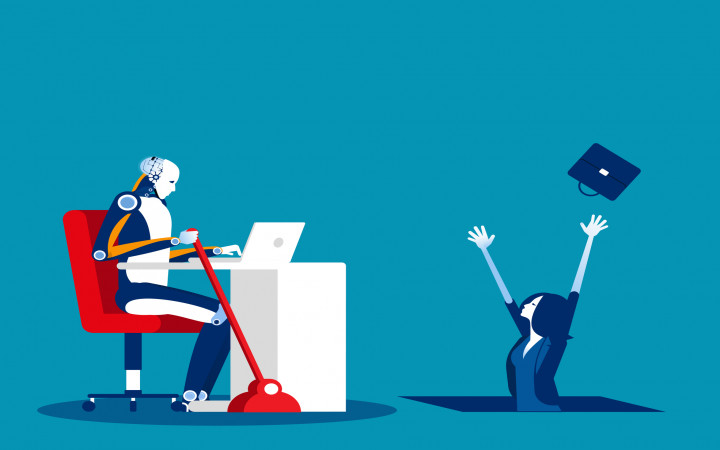Introduction
Artificial Intelligence (AI) has emerged as a transformative technology, revolutionizing various industries and prompting discussions about its potential impact on human jobs. While some fear that AI will replace human workers, others argue that it will create new opportunities and augment human capabilities.
This blog aims to delve into this topic and provide a comprehensive analysis of the impact of AI on the future of work.
Understanding Artificial Intelligence
Before diving into the topic, it is crucial to understand what AI entails. Artificial Intelligence refers to the development of computer systems capable of performing tasks that typically require human intelligence. AI systems learn from data, identify patterns, make decisions, and automate processes. It encompasses machine learning, natural language processing, computer vision, and robotics.
The Transformative Power of AI
AI has already transformed numerous industries, automating repetitive tasks, improving efficiency, and enabling the development of innovative solutions. While this has led to concerns about job displacement, historical evidence suggests that technological advancements have typically led to job creation in the long run. AI has the potential to augment human capabilities, freeing up workers to focus on more complex and creative tasks.
The Evolving Nature of Work
As AI advances, the nature of work is also evolving. Some routine and repetitive jobs are becoming automated, which can lead to job displacement in certain sectors. However, AI also creates new job opportunities that require human skills such as creativity, critical thinking, emotional intelligence, and problem-solving. AI can enhance productivity, streamline processes, and enable workers to focus on higher-value tasks.
Collaboration between Humans and AI
Rather than replacing humans, AI often serves as a collaborative tool. Human-AI collaboration can yield significant benefits, combining the strengths of both. AI systems can assist in data analysis, decision-making, and providing valuable insights, while humans can bring contextual understanding, empathy, and complex problem-solving abilities to the table. This synergy can lead to increased productivity and innovation.
Upskilling and Reskilling the Workforce
To adapt to the changing landscape, upskilling and reskilling the workforce become imperative. As AI takes over certain tasks, individuals need to acquire new skills to remain relevant in the job market. This includes developing digital literacy, data analysis capabilities, and a strong understanding of AI principles. Governments, educational institutions, and organizations play a vital role in facilitating these skill development initiatives.
Ethical Considerations and Socioeconomic Impacts
The rise of AI also raises important ethical considerations. Questions surrounding job displacement, privacy, bias, and the socioeconomic impacts of AI implementation need to be addressed. It is essential to ensure that AI technologies are developed and deployed responsibly, with proper regulations and ethical frameworks in place. Furthermore, measures should be taken to mitigate potential socioeconomic inequalities that could arise due to AI implementation.
Conclusion
While AI undoubtedly has the potential to automate certain tasks and reshape the workforce, the fear of widespread job replacement may be overstated. AI is more likely to augment human capabilities and create new job opportunities that leverage uniquely human skills. To navigate this changing landscape successfully, a proactive approach is required. Governments, businesses, and individuals need to invest in upskilling and reskilling initiatives, foster collaboration between humans and AI, and address ethical and socioeconomic concerns. By doing so, we can harness the transformative power of AI while ensuring a future of work that is inclusive, adaptable, and sustainable.

